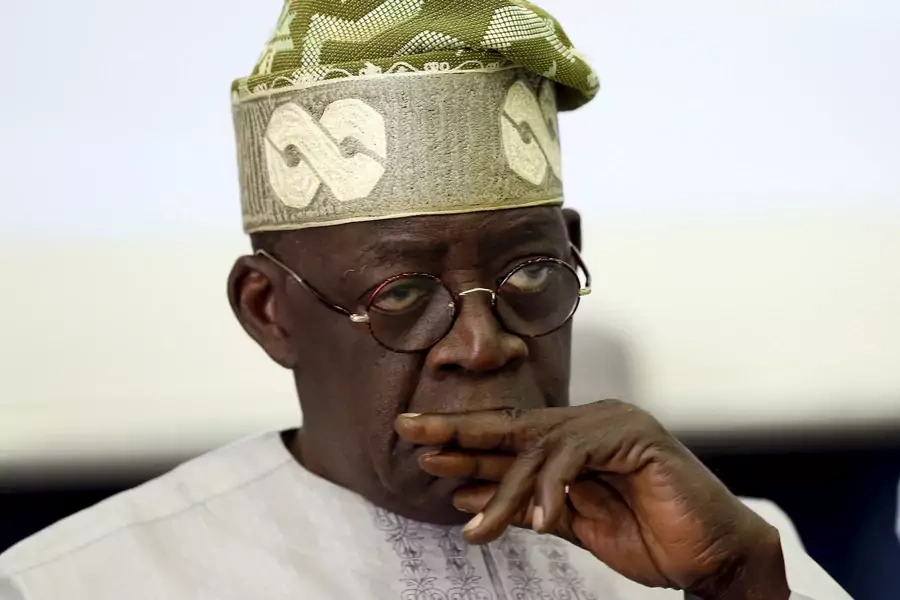Lagos, Aug. 26, 2024 – Ngozi Okonjo-Iweala, the Director General of the World Trade Organisation (WTO), has warned Nigerian politicians to stop weaponising insecurity against government.
She gave the warning on Sunday at the 2024 Annual General Conference of the Nigerian Bar Association (NBA) in Lagos.
Okonjo-Iweala spoke on “A Social Contract for Nigeria’s Future.”’
The WTO boss accused Nigerian politicians of instigating insecurity to make their opponents look bad and incompetent to government.
She said insecurity had been weaponised in Nigeria for political purposes by political players, adding that “we cannot have socio-economic development without security.”
“We all know that security has been weaponised in our country for political purposes by political actors, leading partly to the situation we have now.
Ngozi Okonjo-Iweala said there was the need for Nigeria to move beyond political bickering that had hindered the country’s development since independence.
She said collective efforts, rather than blame games were needed to move the nation forward.
“Nigeria today is not where it should be, and our country has not progressed as it should have been.
“That is why, more than 60 years after independence, we are still discussing nation-building. But we must shift our focus from blame games to concrete actions that tackle present and emerging challenges.”
“I’m not here to castigate or blame anyone, I’m here to speak to all governments of my country, all political parties, all Nigerians, about a positive way forward for the country,” she said.
Okonjo-Iweala said nations like South Korea, Peru, and India had outpaced Nigeria in economic growth and development in spite of having similar starting points decades ago.
“Back in the 1960s, Nigeria’s per capita income was comparable to that of South Korea but today, South Korea’s per capita GDP is 20 times higher than ours.”
“If we look back to the early years of independence, it’s clear Nigeria had what it takes to succeed, and yet we’ve fallen behind countries that were on par with us back then.
“I want to remind people that in the first half of the 1960s, our per capita income in 1960 dollars was roughly equal to that of South Korea, in the neighborhood of 100 to 120 dollars per capita, according to World Bank data. But then South Korea’s growth took off, as it went from exporting primary products like tungsten oil and dried seaweed to manufactured goods.
“Back then, it was textiles and footwear, compared to today’s integrated circuits, electronics, ships and autos, not to mention services exports, such as gaming, entertainment, etc., where South Korea is also strong.
“Meanwhile, Nigeria’s export basket went in the opposite direction and became less diversified. In the early 1960s, mining exports made up half of our exports, and food and animal or vegetable oils together about a third, with manufacturers accounting for five to seven percent.
“But since 1974, oil has dominated, often accounting for 97 to 100 per cent of Nigerian exports, with its share rarely dipping below 90 per cent.
“The good news is that our economy itself is quite diversified, and with the capacity to do much more in terms of agricultural exports, critical minerals, services such as entertainment, etc., and I want to commend ongoing efforts by this government to diversify the exports of our country.
“Last year, Nigeria’s per capita GDP was 1,620 US dollars, while South Korea’s was 33,000,” she said.
“Thailand’s per capita GDP was comparable to Nigeria’s in the early 1970s and is now $7,200. Peru, a country I will come back to, was about even with Nigeria in the early 1980s, but now has a per capita GDP of nearly $7,800.
“Even India, which into the 1990s and 2000s had a per capita GDP well below Nigeria’s, recently surpassed us on that mark and is now $2,484.
“India is now the third largest economy in the world, one of the fastest-growing and modernising economies.
“I cite all these numbers not because GDP is a perfect measure, but because, as Daniel Susskind, a scholar on economic growth at King’s College London, recently put it, and I quote, GDP is correlated with almost every measure of human flourishing.” (GBN)





